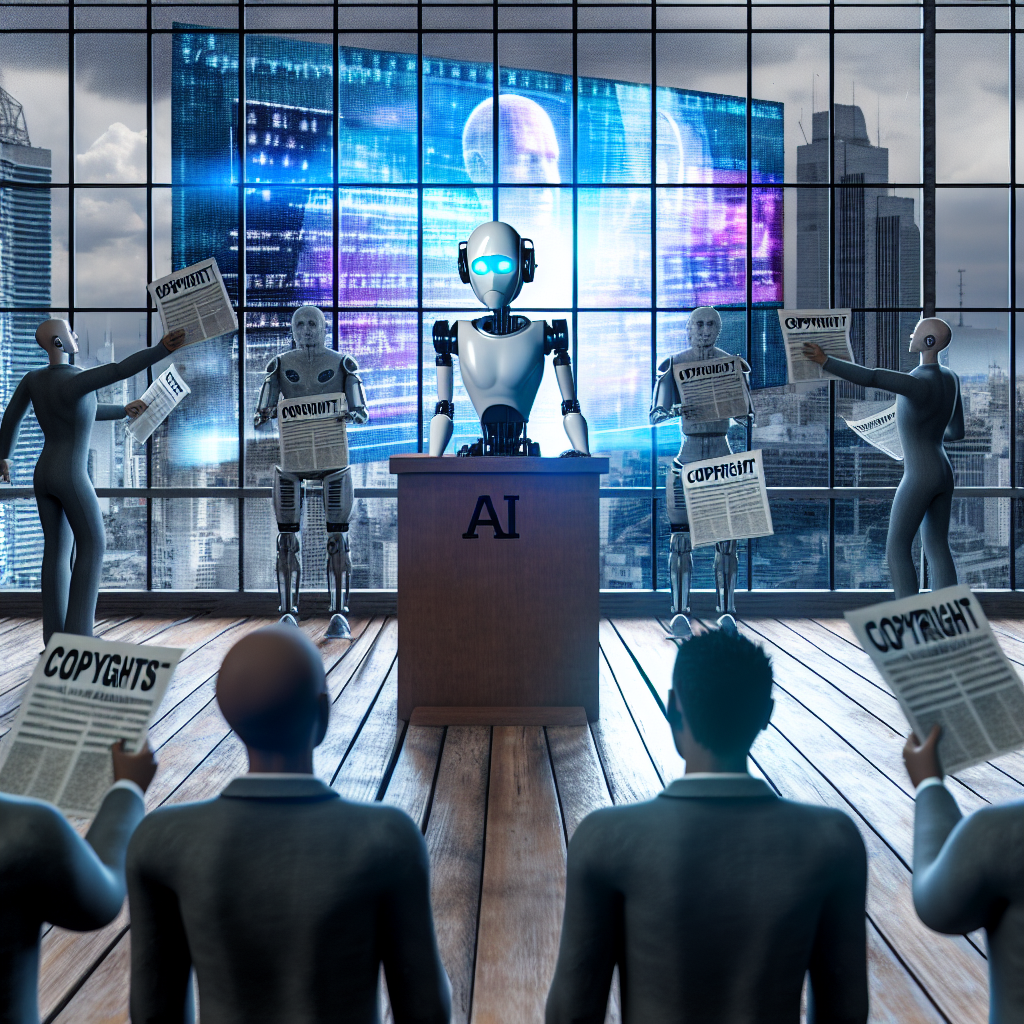News Publishers Battle AI Scrapers: Copyright Concerns Rise
The intersection of **technology** and **copyright** has always been a sensitive topic, but it has recently reached a crescendo with the rise of artificial intelligence (AI). Numerous news publishers are up in arms, accusing AI companies of scraping their content and violating copyright laws. For those not familiar, this recent article sheds light on the controversy engulfing ‘Perplexity AI’ and its alleged unethical practices.
What is Content Scraping?
Before diving into the controversy, it’s essential to understand what content scraping is. **Content scraping** refers to the extraction of information from a website, typically without the owner’s permission. Scrappers use bots to copy large chunks of text, images, or other data, often exploiting that data for various purposes, sometimes commercial.
A Brief Historical Context
The tension between content owners and scrapers isn’t new. Going back to the early days of the internet in the 1990s, web scraping emerged as a common technique for building databases and search engines. However, legal battles soon followed as content creators began to see their work being used without proper attribution or compensation. The landmark case between Ticketmaster and Tickets.com in 2000 marked the beginning of a long-standing conflict in this realm.
The Allegations Against Perplexity AI
Perplexity AI, a company specializing in artificial intelligence, has found itself in the middle of a legal storm. Various news outlets have accused the company of using its sophisticated algorithms to scrape their content illegally. Scraping isn’t inherently bad, but doing so without permission—the crux of the problem here—can be immensely problematic.
How AI Complicates Matters
The involvement of AI adds another layer of complexity. Unlike traditional scraping methods, AI can process and interpret data more intelligently, making it easier to rephrase and repurpose the original content. This makes it harder to prove ownership and copyright infringement, as the AI might significantly alter the appearance of the content while retaining its core meaning.
Why Copyright Matters
**Copyright laws** are designed to protect the intellectual property of creators, ensuring they get due credit and financial compensation for their work. In the context of journalism, these laws help sustain a business model where revenue generated from content can support investigative reporting and quality journalism.
The Economic Impact
When AI scrapers take content without permission, they undermine the economic model that sustains news organizations. The resources spent on reporting and writing are wasted if the final product is freely accessible elsewhere. This can harm smaller news outlets significantly, which might not have the legal resources to fight back.
The Ethical Dilemma
Beyond legality, there is an ethical consideration. Reputable journalism relies on trust, transparency, and accountability. AI scraping erodes these values, as it enables the distribution of potentially altered or misquoted information. This can contribute to the proliferation of **fake news** and misinformation, a pressing issue in today’s media landscape.
The Road Ahead
What’s clear is that a balance needs to be struck between leveraging technological advancements and respecting copyright laws.
Legal Framework
Governments and regulatory bodies need to update their legal frameworks to encompass AI’s capabilities. Current laws do not adequately address the nuances introduced by AI technologies. Collaborations between **lawmakers** and **tech companies** could lead to effective solutions that respect both innovation and intellectual property.
Technology Solutions
Interestingly, technology itself could offer solutions to the problem it created. Blockchain and other decentralized technologies could provide immutable proof of content ownership. AI could also be used to detect and report unauthorized scraping activities.
Public Awareness and Education
The general public also plays a role. Being discerning consumers of content, questioning sources, and understanding the ethics involved can create a market-driven deterrent against unethical practices.
Conclusion
The battle between news publishers and AI scrapers is more than a legal scuffle; it’s a fight for the future of digital content. As we move forward, it’s crucial to find a way to leverage AI’s immense potential without compromising ethical standards and legal norms. For the sake of quality journalism and reliable information, stakeholders must come together to devise a fair, workable solution.
As always, it’s essential to stay informed and vigilant, understanding the multiple facets of any issue involving rapidly evolving technologies.
Disclaimer: This is an AI-generated summary of the article, “News Publishers Battle AI Scrapers: Copyright Concerns Rise,” originally published by the Indian Express. For the full article, click here.
